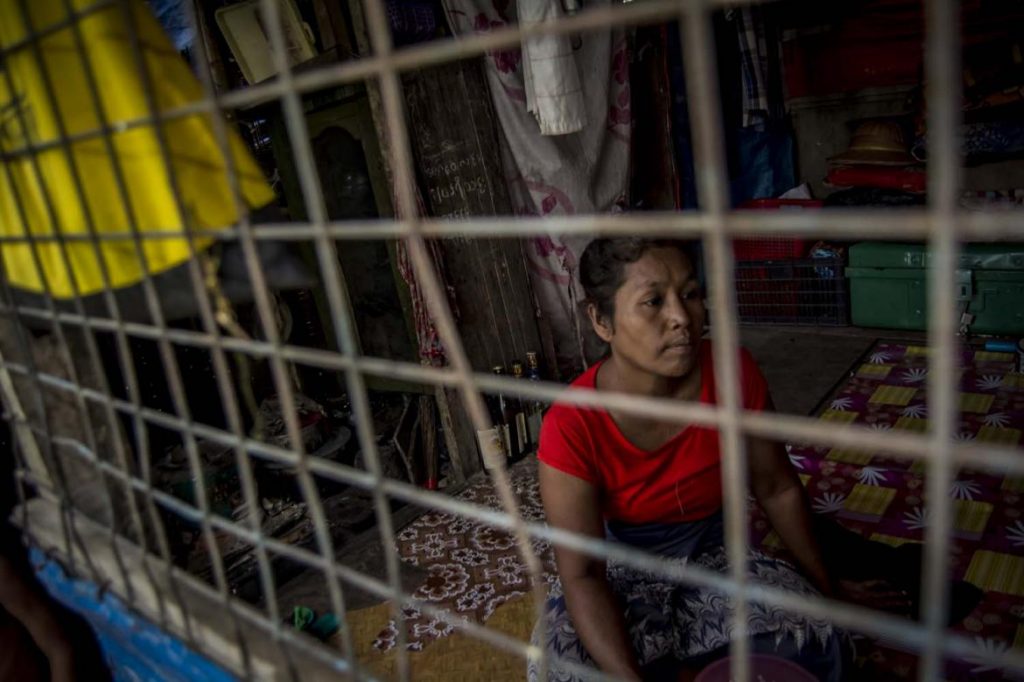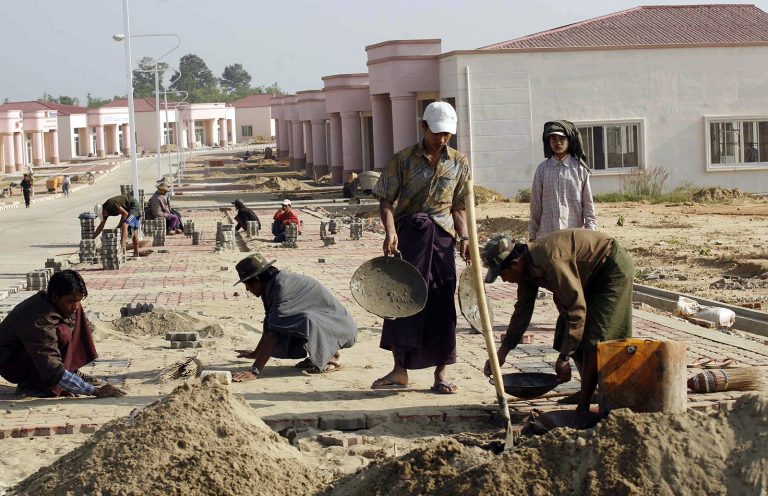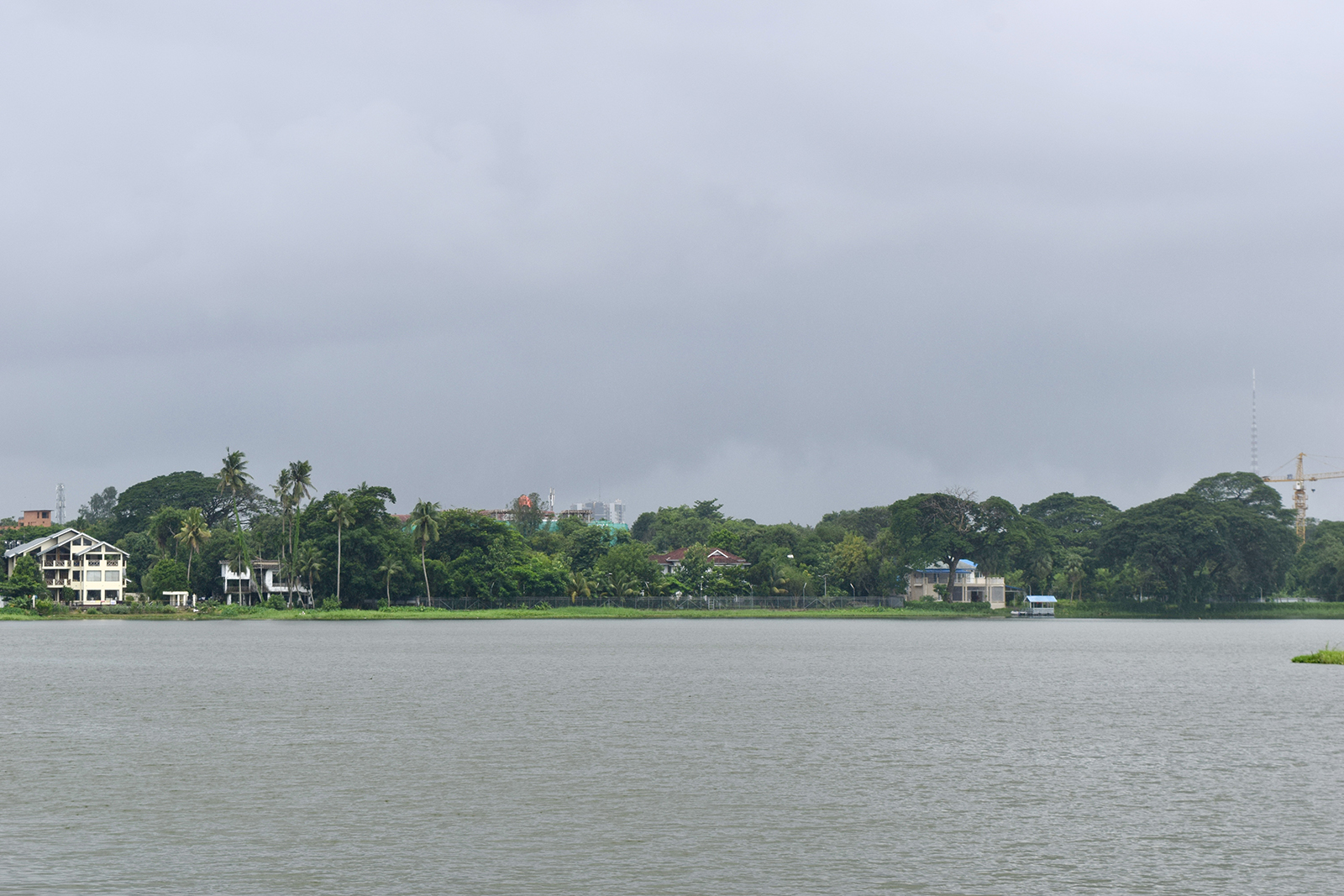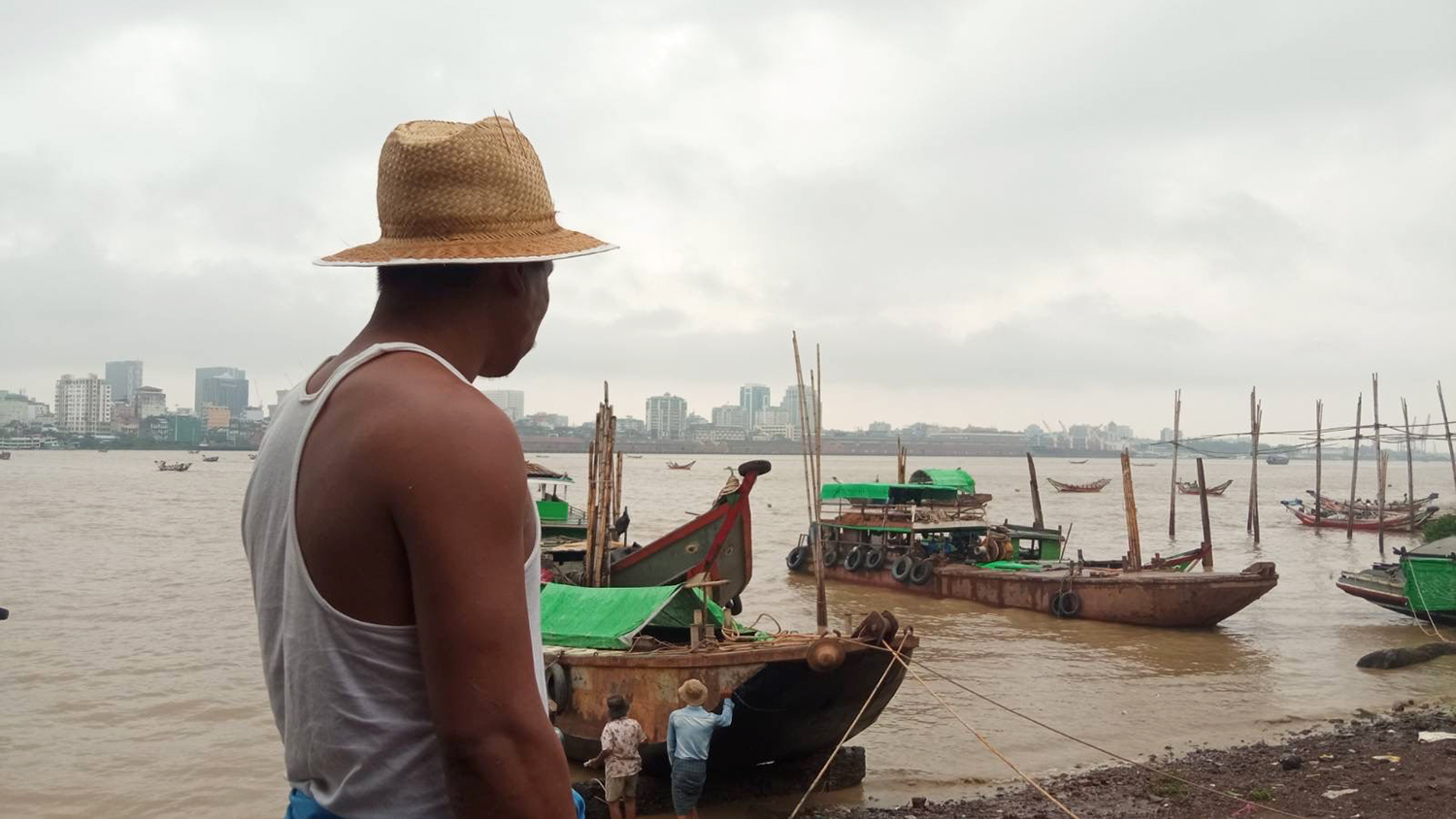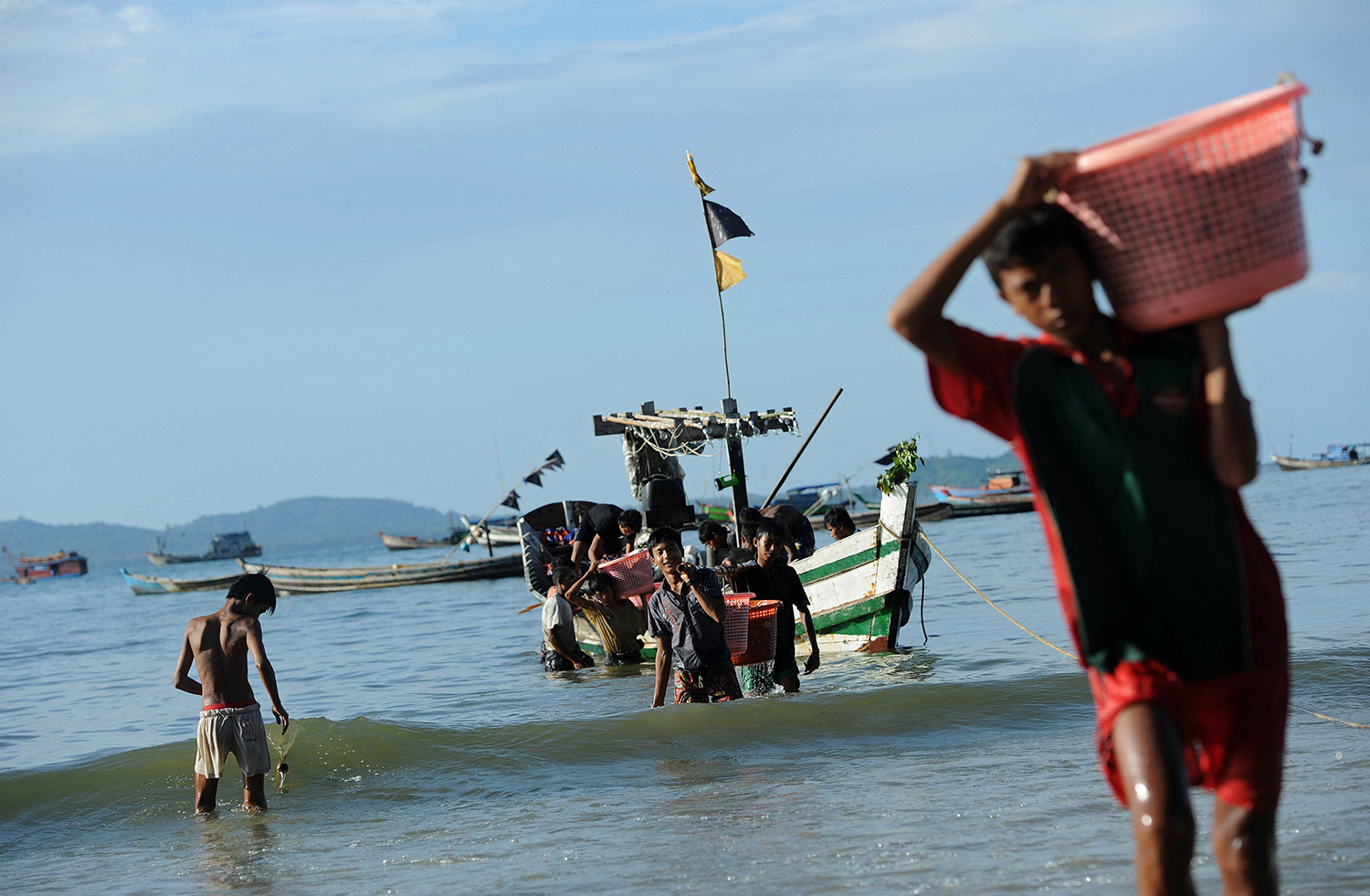A black market has emerged for the smart cards that are intended to give Yangon squatters priority for buying low-cost government housing.
By KYAW YE LYNN | FRONTIER
IDENTITY CARDS issued to thousands of Yangon squatters under a move to give them priority for resettlement in a low-cost housing project are being sold illegally, with prices more than tripling over the past year, Frontier has learned.
The Yangon Region government, which made resettling the city’s estimated 430,000 squatters a top issue after taking office two years ago, completed issuing the smart ID cards late last year after conducting a population survey of squatting communities.
A total of 167,738 of the ID cards have been issued by a taskforce established by the regional government and many squatters are excited by the prospect of using them to be able to move into permanent housing.
However, a thriving black market has developed in the sale of the cards, in some cases driven by unscrupulous investors who are flouting the law.
Support more independent journalism like this. Sign up to be a Frontier member.
A resident of one of Yangon’s biggest squatting communities, in outer northwestern Hlaing Tharyar Township, said he had begun buying the cards on behalf of a well-known local businessman last year.
Real estate agent Ko Myo Thu said he had so far bought about 100 of the cards for the businessman at Hlaing Tharyar, where 25,000 of the documents had been issued by May last year.
Myo Thu said the first card he bought for the businessman, in March last year, cost K600,000.
“Now the price is about K2 million,” he told Frontier in a telephone interview in early April.
Myo Thu said when he was first asked by the businessman early last year to buy the cards, he had warned it was not a good idea.
“[The businessman] said he is taking a calculated risk and is still buying more cards,” he told Frontier, adding that the businessman is confident of making a good profit when the authorities begin selling the low-cost housing.
Among the genuine squatters eager to move into more comfortable housing is Ma Thi Thi Moe, 32, and her trishaw driver husband, who have been living as squatters in Hlaing Tharyar since 2013.
They received their smart ID card in January 2017.
“We are hoping to have the chance of buying an apartment with instalment payments and if it happens, it will be like winning a big lottery prize for us,” Thi Thi Moe told Frontier.
Squatters lived in fear of eviction and the cards have given them hope of secure housing at an affordable price, she said.
“We heard Kwee Phyo is going to build low-cost housing for us,” she said, using a nickname for Yangon Region Chief Minister U Phyo Min Thein. “Kwee” is a slang term for big brother (“ako gyi”) that has been bestowed on the chief minister since early in his term.
Myo Thu said there was also demand for the cards from ordinary residents who hoped to use them to buy a low-cost apartment on an installment plan.
“I explain to them that it is not a good investment and they may lose their money; and it is not legal,” he said. “But if they still want to follow the trend, it’s up to them.”
Yangon Region MP U Nyi Nyi (NLD, South Dagon-1) said the regional government would prioritise the smart card holders when the low-cost housing goes on sale.
Nyi Nyi said it would be “impossible” for anyone to use the cards to impersonate a genuine squatter.
“The cards include bar codes, fingerprints, head shots and household information,” he told Frontier by phone. “The regional government has made clear that transferring the cards to others is illegal.”
Nyi Nyi said some squatters in his constituency were pawning the cards when they faced financial emergencies.
“At first sight, it’s not a problem, but it could cause trouble if they could not redeem them,” he said.
Thi Thi Moe said she had temporarily pawned her card twice last year; in March for K100,000 when her son was hospitalised, and in November for K170,000 to repair her husband’s trishaw.
She vowed never to sell her card because it was her family’s only hope for a secure, permanent future home.
Thi Thi Moe said a neighbour had sold a card for K800,000 in May last year after deciding to move to South Dagon Township.
“I tried to stop them selling the card, but they said they would probably get another one in the new place,” she said.
Meanwhile, an NLD lawmaker in the Yangon hluttaw has complained about a lack of clarity over Phyo Min Thein’s reported plan to resettle squatters in a low-cost housing project on 3,000 acres (1,214 hectares) on the Pun Hlaing River in Twante Township.
“They are working on a pilot project to develop 200 acres in Twante’s Padan Yay Kyaw village tract, but we don’t even know the details about the smaller project,” Dr Kyaw Zin Oo (Twante-1) told Frontier on April 3.
He accused the regional government of ignoring lawmakers’ requests to provide more information about the projects for the sake of transparency.
“Even if the projects, including New Yangon City, are in good will, they must be in accordance with the appropriate procedure,” Kyaw Zin Oo said. “U Phyo Min Thein should disclose the project details to parliament.”


